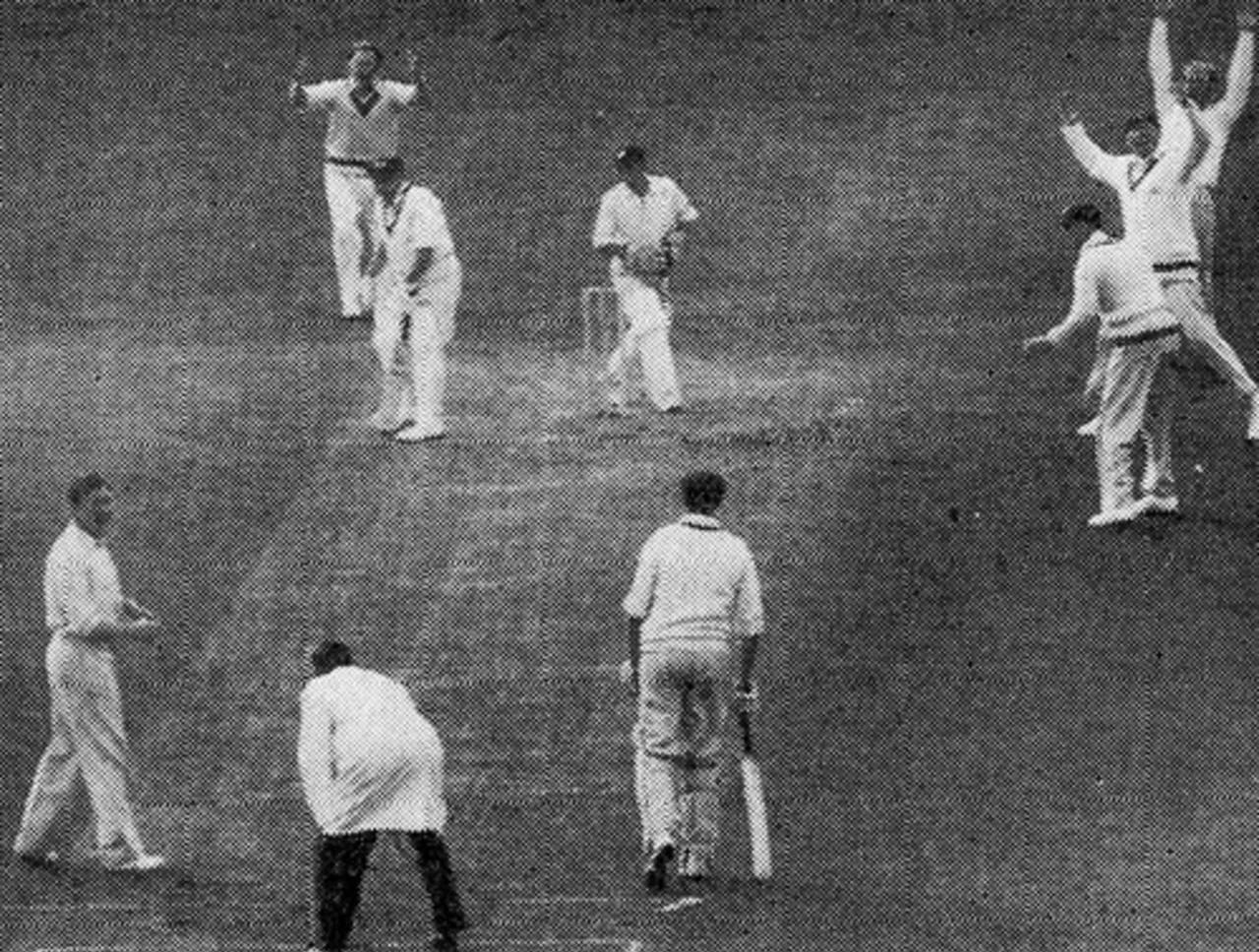SWETMAN, ROY, died on July 21, aged 89.
When the SS Camito left Bristol for Bridgetown in December 1959, Roy Swetman looked to be settled as England's long-term replacement behind the stumps for Godfrey Evans. Yet things changed radically after a fallout with manager Walter Robins. "Roy's personality didn't always help him," said Keith Andrew, his deputy in the Caribbean. "He said what he thought, when he might have been better to get on with it."
Two Tests into the five-match series, Robins wanted to drop Swetman for Andrew. But captain Peter May, a Surrey team-mate, resisted the move. By the last game, at Port-of-Spain, with England protecting a 1-0 lead and keen to bolster the batting, Jim Parks - not in the original tour party but coaching in the Caribbean - was called up. Robins told Swetman he would not play for England again. He never did.
Swetman had a stop-start career, retiring twice before returning for stints with Nottinghamshire and Gloucestershire. He had joined Surrey, aged 15, in 1949, but did not make his first-class debut until 1953 - for Combined Services. He first appeared for his county the following year, but Arthur McIntyre was ensconced as wicketkeeper. Swetman was, though, selected for an MCC tour of Pakistan in 1955-56, when he and Brian Close doused umpire Idris Baig with water - a prank that caused a diplomatic stand-off.
Not until 1956, when McIntyre broke his hand, did Swetman have a run of county games. But he was back to understudy for the next two summers, and chosen for the 1958-59 Ashes tour while Surrey's No. 2. "There is only one Evans in the world, and Swetman, his substitute, has the same buoyant ability," wrote John Woodcock in The Times. County team-mate Micky Stewart said: "The selectors would have been aware of his potential and how long he had waited for his chance at Surrey."
In Australia, where a star-studded but ageing England team lost 4-0, Swetman made his debut in the Third Test at Sydney, hitting 41; Norm O'Neill, caught off Jim Laker, was his first victim. He kept his place for Melbourne, then for the two Tests in New Zealand. "He was a top keeper," said Stewart. "In fact, he was a good all-round cricketer, because he could bat as well."
Small, dapper, light on his feet and blessed with excellent hands, Swetman looked the part. After Evans had been given two farewell appearances against India in 1959, he came in for the last three Tests, hitting 65 at The Oval in a seventh-wicket stand of 102 with Ray Illingworth. But Robins was never a fan. Had Andrew not gone down with flu en route to the Caribbean, Swetman - who began with 45 at Bridgetown, but didn't pass five in another six innings - might have lost his place even sooner.
When England began their home series against South Africa in 1960, Parks retained the gloves. It affected Swetman's motivation. "He enjoyed his time off the field too much," said Stewart. "He enjoyed what cricket brought you other than the cricket. He'd start the season in good nick, but after a few weeks he wouldn't be so sharp. He didn't have the strength and stamina to maintain that lifestyle."
Swetman's accomplice on many an adventure was Mike Willett, who drove them round the country in his Sunbeam Talbot. "We had a little radiogram and used to have it going on the back seat of the car," he told the writer Stephen Chalke. "The old 78s, they used to melt on a hot day. We would take the turntable into the hotel and the dressing-room. We introduced some gaiety."
His attitude could be at odds with Surrey's hard-nosed approach. In a run-chase at Trent Bridge in May 1961, he ignored Stewart's signal from the balcony to play for a draw once the seventh wicket had fallen. He was soon bowled trying to slog Bomber Wells, and Surrey lost in the final over. "I'd rather lose going for a win than play out a boring draw," he said. "What's the point of cricket if you're not trying to win?"
In 1961, Swetman was offered a job in children's publishing, at a considerably higher salary than county cricket, and he retired from the game. Stewart asked what his new role entailed: "He said he'd be taking people out for lunch." McIntyre, who had been persuaded to step down in 1958, was fuming: he believed he could have played on for two more years.
But Swetman unexpectedly returned to cricket in 1966, joining Nottinghamshire after the retirement of Geoff Millman. He kept as well as ever, and hit a century against Essex at Trent Bridge. His stature earned ribbing from team-mates, especially when dealing with wild throws from the outfield. Basharat Hassan recalled: "He was a pleasant little bloke with a cockney accent and his own catchphrase. He would call out: 'It's coming through, it's coming through. Anybody backing?' Barry Stead used to throw the ball over his head, just to hear him repeat it."
After two summers, Swetman quit again, then made a second comeback, for Gloucestershire in 1972. He was 38, but showed he was still up to the job in an early-season match with a brilliant leg-side catch to dismiss Hampshire's Peter Sainsbury. He became a publican in the Bristol area, and finally left the game after a handful of appearances in 1974. Like many purists, he bemoaned the decline in standards and the rise of the keeper-batsman, and would grumble regularly on the phone with former Middlesex wicketkeeper John Murray. It always concluded the same way: "We never dropped catches, did we?"

